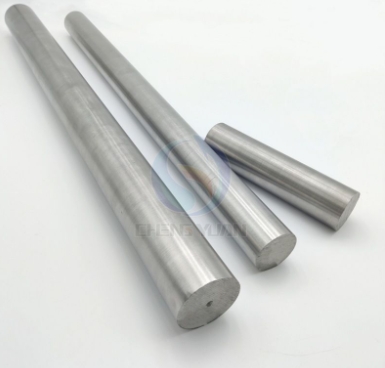What are soft magnetic alloys?
Introduction
Soft magnetic alloys, often hailed as the unsung heroes of the materials world, are a fascinating class of materials with unique magnetic properties that set them apart in various industrial applications. In this blog post, we'll embark on a journey to understand the nature of soft magnetic alloys, exploring their composition, properties, and the diverse applications that rely on their magnetic prowess.
Defining Soft Magnetic Alloys
Soft magnetic alloys are a category of materials specifically engineered to exhibit excellent magnetic properties while maintaining low coercivity and hysteresis losses. Unlike hard magnetic materials, which retain their magnetization once magnetized, soft magnetic alloys are designed to undergo rapid and reversible magnetization, making them ideal for applications where dynamic magnetic behavior is essential.
Composition of Soft Magnetic Alloys
Soft magnetic alloys are typically composed of a combination of elements carefully chosen to optimize their magnetic properties. Common elements found in these alloys include iron, nickel, cobalt, and various non-magnetic elements such as silicon. The careful selection and control of alloy composition contribute to the unique magnetic characteristics that make these materials so valuable.
Understanding the Magnetic Properties
Soft magnetic alloys possess several key magnetic properties that make them indispensable in various technological applications.
1. High Magnetic Permeability
One of the defining features of soft magnetic alloys is their high magnetic permeability. This property allows these materials to easily respond to changes in magnetic fields, making them ideal for applications where efficient magnetic flux is crucial.
2. Low Coercivity
Coercivity is the measure of a material's resistance to becoming magnetized. Soft magnetic alloys have low coercivity, meaning they can be magnetized and demagnetized with minimal applied magnetic field strength. This characteristic is essential in applications where rapid and frequent magnetic transitions are required.
3. Low Hysteresis Losses
Hysteresis losses refer to the energy dissipated as heat when a magnetic material undergoes cycles of magnetization and demagnetization. Soft magnetic alloys exhibit low hysteresis losses, ensuring that the energy input for these processes is minimal. This property is particularly advantageous in devices and systems where energy efficiency is a priority.
Applications of Soft Magnetic Alloys
Soft magnetic alloys find a wide range of applications across diverse industries, contributing to the functionality of numerous electronic devices and power systems.
1. Transformers
In the realm of power distribution, soft magnetic alloys are a cornerstone in the construction of transformer cores. The high magnetic permeability and low losses make these alloys crucial for efficient energy transfer in transformers, reducing energy wastage during power transmission.
2. Electric Motors and Generators
The construction of cores in electric motors and generators often involves the use of soft magnetic alloys. The low coercivity ensures that these systems can efficiently convert electrical energy into mechanical energy and vice versa, powering everything from household appliances to industrial machinery.
3. Inductors and Chokes
Inductors and chokes in electronic circuits rely on the magnetic properties of soft magnetic alloys for energy storage and release. Their ability to undergo rapid and reversible magnetic transitions makes them invaluable components in electronic devices, ensuring the efficient operation of circuits.
4. Magnetic Sensors
Soft magnetic alloys play a crucial role in the manufacturing of magnetic sensors, providing the necessary magnetic responsiveness for accurate sensing and measurement. These sensors find applications in diverse fields, including automotive systems, medical devices, and industrial automation.
Conclusion
Soft magnetic alloys, with their exceptional magnetic properties and versatile applications, are the unsung champions behind the seamless functioning of many modern technologies. As we continue to push the boundaries of innovation, these materials are likely to play an increasingly vital role in shaping the future of electronic devices and power systems. The next time you switch on a device or benefit from a power-efficient system, take a moment to appreciate the silent yet significant contribution of soft magnetic alloys to our technological landscape.


